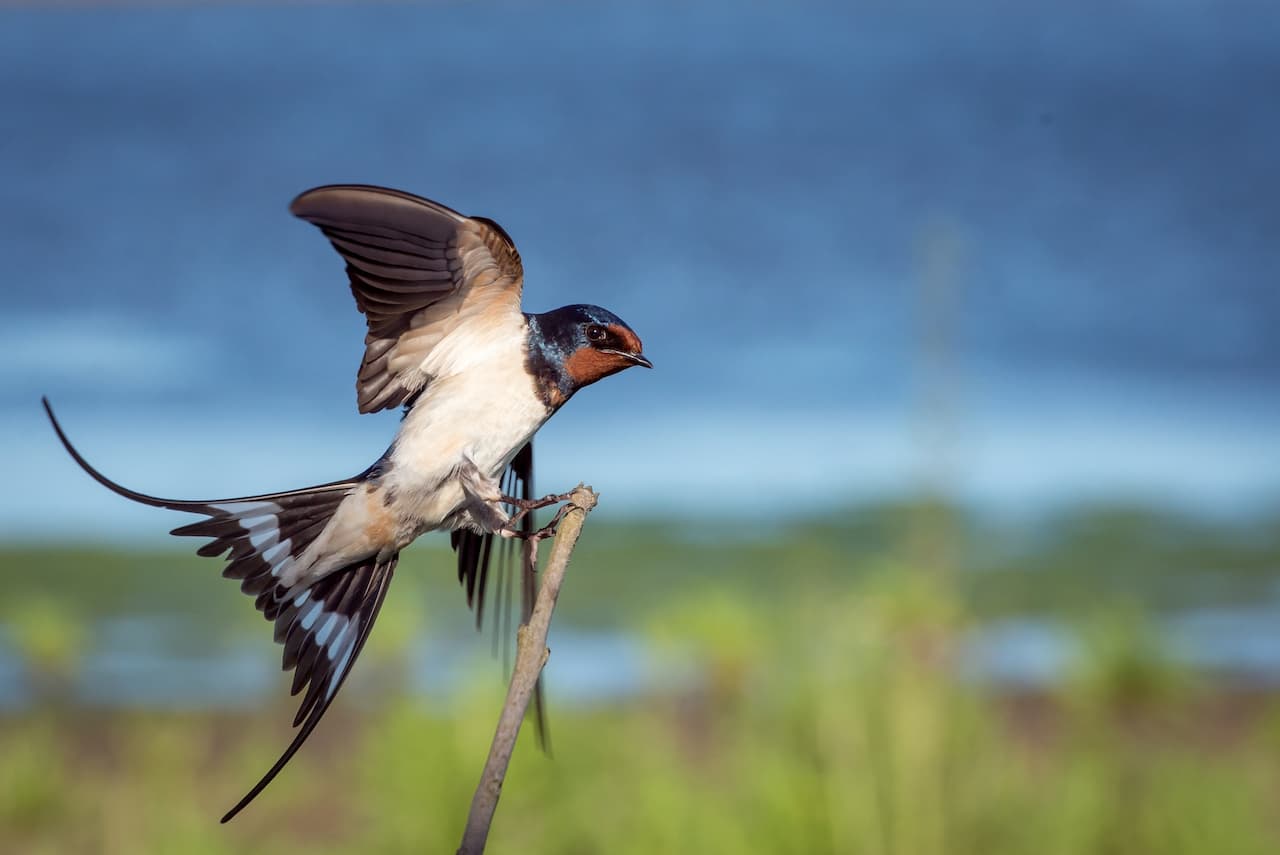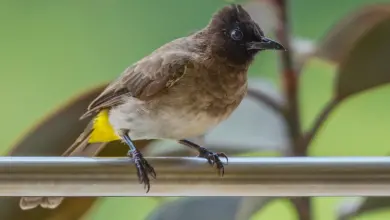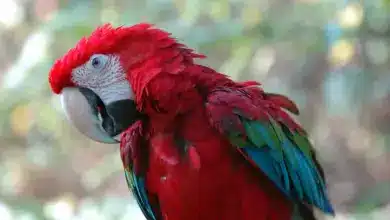Muscovy Ducks as Pets: What You Need to Know?
Long bred for meat and eggs, the docile nature of muscovy ducks is courting attention from many prospective pet parents. But how are muscovy ducks as pets: are they easy to keep and bond with?
Pets are an important part of the lives of many households across the globe, with an estimated 70% of American families owning at least one pet.
However, choosing the right pet for you can be a hard choice to make.
A growing number of households are deciding to own Muscovy ducks as companion animals.
Read on to discover what you need to know about owning Muscovy ducks as pets.
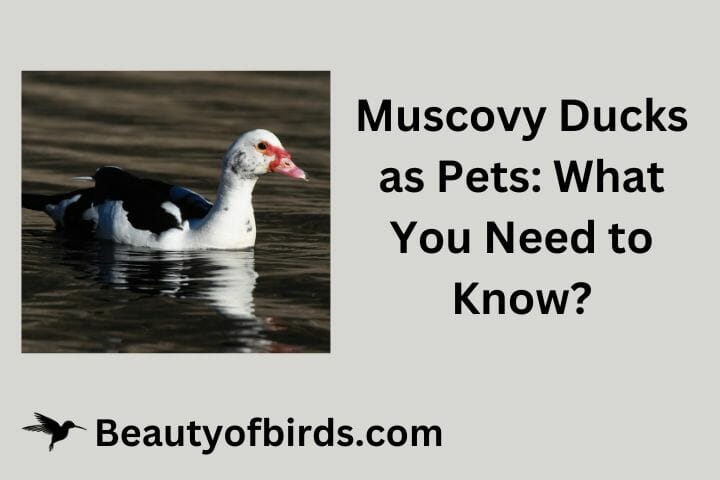
What Are Muscovy Ducks?
Muscovy ducks (Cairina moschata) are a species of waterfowl native to Central and South America. Some wild populations also exist in south Texas, in North America.
Wild Muscovies have a glossy back and white patches on their wings. They are slender-bodied and good fliers.
In the wild, Muscovies nest in tree cavities to evade predators on the forest floor. Sharp claws on the end of their webbed feet allow them to perch on branches with ease.
One of the most striking features of a Muscovy duck is the presence of the caruncle.
The caruncle is an area of red, warty skin that can be found on the Muscovies face. These spots are usually darker and more prominent in males.
Domesticated Muscovies
Indigenous communities throughout Central and South America began domesticating Muscovy ducks pre-Columbus, hundreds of years ago.
After the New World colonization by Columbus, Muscovies were sent back to Spain.
Due to their large size, with males reaching up to 15 lbs, they were used for egg, meat, and feather production.

Now, domesticated Muscovies can be found in nearly all habitable regions of the world except for Antarctica.
While they still have a globally important role in breast meat and egg production, many people are adopting a different viewpoint with Muscovy ownership: companionship.
With their mild temperament, these friendly and inquisitive ducks make great pets and additions to homesteads.
Are Muscovy Ducks Legal Pets In The US?
At first glance, this may seem like an unusual question to ask. After all, this is a duck we’re talking about.
In short, owning a Muscovy duck as a pet in the United States is legal.
But, as with certain breeds of dogs, there are certain regulations when it comes to Muscovy duck ownership.
But why? This is a non-aggressive species of duck. What’s the big deal?
Unfortunately, often due to a lack of care, many domesticated Muscovies escaped captivity and established feral populations across much of the United States.
Besides a small southern region of Texas, Muscovy ducks are not native to the U.S. As a result, they have become an invasive species.
They out-compete local waterfowl species for food and space and are vectors of disease that threaten native flora and fauna.
So, while you are allowed to keep Muscovies as pets, it is prohibited to release Muscovies into the wild.
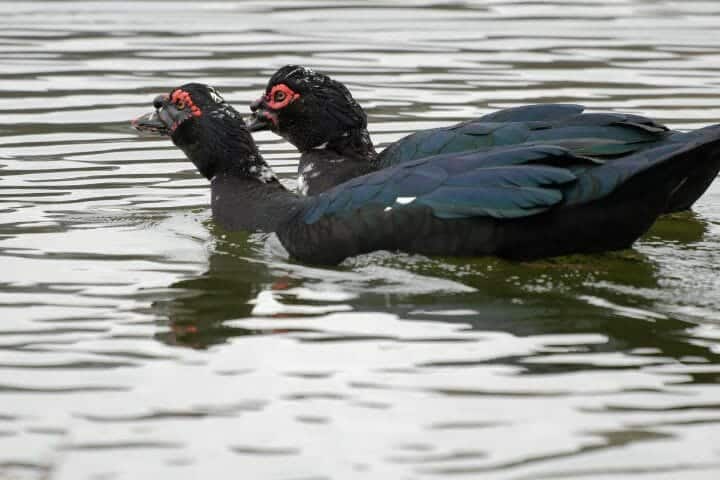
Are Muscovy Ducks Good Pets?
If raised and cared for correctly, Muscovy ducks make great pets. Here’s why:
Muscovy ducks are quiet
Unlike other domesticated duck species, Muscovy ducks do not quack. Instead, they vocalize and communicate using a series of hisses and tail wags.
This means you do not have to be in the back and beyond to own a flock of Muscovies, as their hissing will not disrupt any neighbors.
Muscovy ducks are clean (ish)
In comparison to other domestic duck breeds, Muscovy ducks are not as messy.
This isn’t to say they do not make a mess at all because they do – especially when they poop.
However, they look after themselves by using oil secretions from glands in the caruncle and water baths.
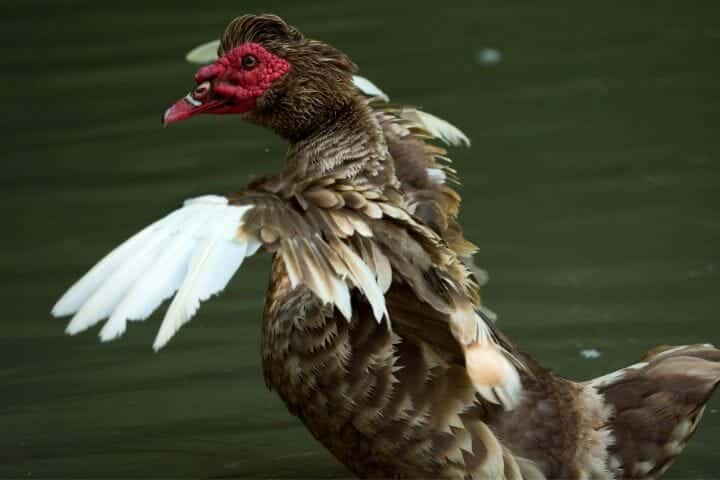
Muscovy ducks are hardy
Despite evolving in tropical climates, domesticated Muscovies can tolerate a wide variety of temperatures and weather extremities.
In cold climates, you may find that, despite providing Muscovies with shelter and hay, they will adamantly remain outside.
Muscovy ducks are free pest control
Summertime is the season of insects. Annoying, biting, stinging insects.
Fortunately, insects form the vast majority of a Muscovies diet. One of their favorite prey species is mosquito larvae.
Not only can insects be annoying, but they are also renowned for carrying diseases. Muscovies reduce the risk of insect disease transmission in humans.
Muscovies are opportunistic predators and will happily munch on anything they can get their beak on, and this includes ants, spiders, mosquitos, and so on.
Muscovy ducks lay tasty eggs
If you’re after an egg-laying machine, a Muscovy duck may not be for you.
Muscovies are not known for laying vast quantities of eggs – you’re looking at around 100 – 200 eggs per year, depending on the bird and climate.
The eggs they do lay, however, are said to be rich, decadent, and noticeably more intense than that of a chicken egg.
So if you like the occasional fried eggs for breakfast, muscovy ducks are an excellent choice.
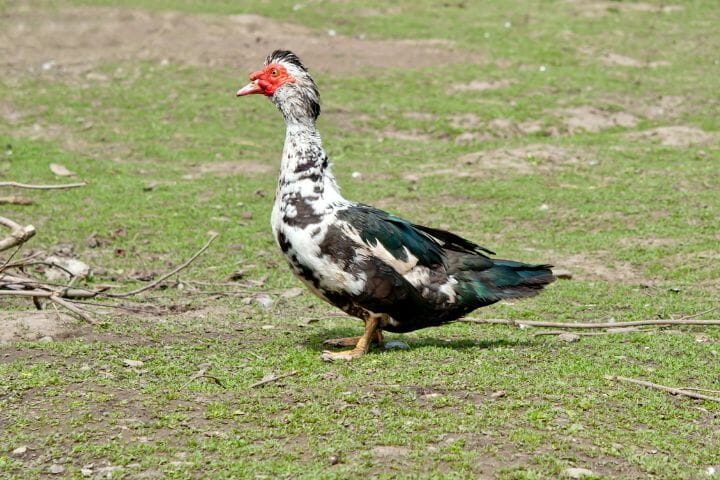
Muscovy ducks can form bonds
This is especially true if you have rescued a Muscovy. It may take some time and plenty of patience, but you can bond with your Muscovy.
Oftentimes, you will find them rushing towards you with their tail wagging – exactly like a dog.
They like to be close to a caregiver, and seek human company. Despite this, do not try to actively pet or cuddle your Muscovy duck.
What Do Muscovy Ducks Eat?
Well, the question really should be, “what don’t Muscovy ducks eat?”.
As mentioned, Muscovy ducks are omnivores. This means they eat both plant and animal matter.
Muscovies have an insatiable appetite and will consume just about anything they can catch.
This includes some surprising food items, such as fish, amphibians, and reptiles.
The vast majority of a Muscovy duck’s diet, however, comprises insects and their larvae.
Black soldier flies, mosquitos, and worms are readily available throughout spring, summer, and fall. They are an excellent source of protein for Muscovies.
If you are lucky enough to have a pond, you may find your Muscovy diving to eat algae and aquatic plants.
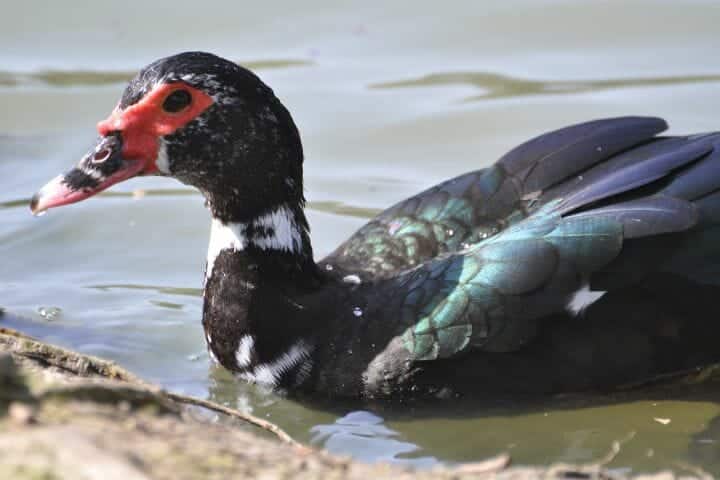
Without a pond present, Muscovies will happily graze on grass and other shrubs, much like a goose would.
This is an important factor to consider before getting Muscovies.
They are likely to destroy patches of the garden whilst they forage either for insects or munch on grass.
In wintertime, when insect abundance becomes more scarce, consider supplementing their diet with nutritional feed. Chicken feed works well for Muscovy ducks.
Health-Related Problems
As far as duck breeds go, Muscovy ducks are easy to look after and rarely get sick.
Most illnesses are avoidable in Muscovy ducks with the right care, hygiene, food, and space.
The Muscovy duck parvovirus is a virus similar to the goose parvovirus.
It is highly contagious and can be fatal to young ducklings.
It is spread via contaminated feces. The best way to avoid this virus is to keep your Muscovies in an adequate space and in hygienic conditions.
Other diseases include duck virus hepatitis and duck plague.
If you see your Muscovy duck acting sluggish, lethargic, disinterested in food, or with diarrhea, you should consult your veterinarian.
Blood tests can be carried out to determine a cause, and treatment can be administered quickly.

Aspergillosis is a common condition whereby Muscovies can inhale fungal spores from Aspergillus fumigatus.
This occurs when bedding, such as sawdust or hay, becomes damp and is not changed regularly. Gasping is a common symptom.
It may also be worth deworming your ducks on a 6-month basis.
Local pet stores should stock worm tablets, and you can do this yourself by adding medication to their regular feed.
A veterinarian is not required for this, but ensure you read the instructions very closely.
Frequently Asked Questions
What Do I Need For Muscovy Ducks?
When they are nesting, muscovy ducks prefer to prepare separate nesting houses, and you should try to create one for them as a duck parent.
Can You Pet Muscovy Ducks?
However, do not try to pet or cuddle them. This will scare them away and may cause unnecessary stress.
What Do Muscovy Ducks Like To Eat?
Algae, weeds, grass, insects, larvae, crustaceans, fish, and reptiles all form part of a Muscovies natural diet.
You can also add nutritional supplements, as well as fruit and vegetables, into their diet.
Why Does My Muscovy Duck Bite Me?
This is most notable in brooding or nesting females.
Female Muscovies defend their nests fiercely. Males, or drakes, can also bite during the mating season.
Wrap Up
Muscovy ducks make great pets. They are friendly and quiet, but above all, they keep nasty pest insects at bay.
Although it is legal to own Muscovies as pets, you cannot release them back into the wild.
Also though it is uncommon, Muscovies can occasionally get sick, often as a result of poor hygiene.
If you are worried about your duck’s behavior, consider taking it to a vet.
Thank you for reading, and I hope you consider raising Muscovy ducks as pets in the near future.

